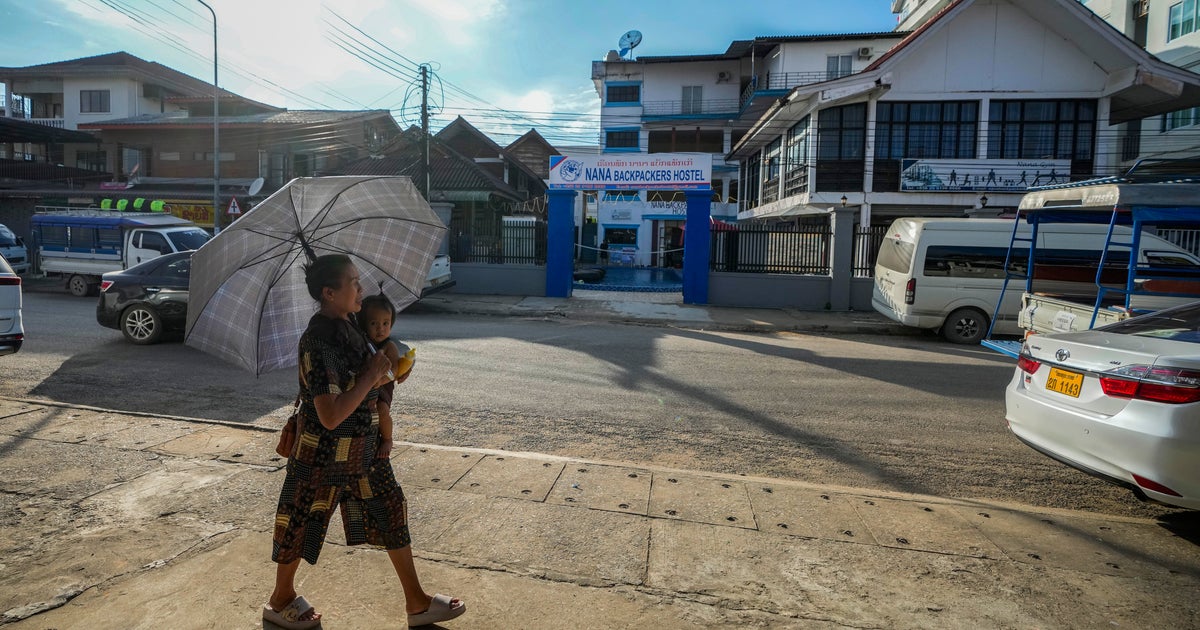U.S. curtails refugee admissions to focus on resettling Afghan evacuees
The U.S. government is curtailing admissions of refugees to focus on the massive effort to process and resettle tens of thousands of Afghan evacuees, the State Department said Monday.
Through January 11, the U.S. will stop booking travel for refugees who don't qualify for certain exceptions. Refugees who need to reunite with family in the U.S., who are travel-ready, who have "urgent cases" or whose medical and security screenings are set to expire soon will continue to be resettled, the State Department said.
The limits on refugee admissions were requested by the local nonprofit refugee resettlement agencies that partner with the government to help immigrants fleeing violence and war settle in American communities, two people familiar with the matter told CBS News.
Since the late summer, the resettlement groups have been coalescing their efforts on assisting the more than 73,000 Afghan evacuees the U.S. has relocated to America after the Taliban reconquered Afghanistan.
The effort, dubbed Operation Allies Welcome, has strained the resources of the nine national resettlement groups and their local affiliates, many of which closed down offices and reduced their personnel levels during the Trump administration, which dramatically slashed refugee admissions.
"This temporary prioritization of new bookings will allow Resettlement Agencies and community partners to provide necessary services to the Afghans that will be leaving U.S. safe havens in the coming weeks and months as well as to receive refugees already booked for travel in November and December," the State Department said in a statement.
Roughly 46,000 Afghan evacuees are currently living at eight military installations across the U.S. mainland that have been serving as temporary housing sites while officials prepare to relocate the newcomers to their respective destinations in America, the latest government figures show.
So far, 25,000 evacuees have departed the military sites, including 19,000 Afghans who have been resettled by the non-profit resettlement groups, according to Department of Homeland Security (DHS) figures.
"This temporary approach will help expedite the resettlement of Afghans from safe havens to their new communities," the State Department said, using the government's name for the military sites.
Another 2,600 people evacuated from Afghanistan are waiting for U.S.-bound flights at military bases in the Middle East and Europe, according to the DHS data.
Resettlement groups, many of which are faith-based, help refugees secure affordable housing, jobs and government benefits designed to facilitate their integration into American society.
The restrictions on refugee admissions, while temporary, will further complicate the U.S. government's efforts to fulfill President Biden's ambitious goal of resettling up to 125,000 refugees in fiscal year 2022, which started last month.
In October, the U.S. admitted 401 refugees, an 89% drop from September, when nearly 3,800 refugees arrived in the country, government data show.
The admissions numbers don't include the tens of thousands of Afghan evacuees brought to the U.S. since the summer because they entered the country under a humanitarian process known as parole — not through the traditional refugee program.
The temporary refugee admissions restrictions will not apply to immigrants who assisted U.S. military forces and have Special Immigrant Visas, the State Department noted.
The Biden administration has faced difficulty rebuilding the U.S. refugee program, which was crippled by numerous Trump-era restrictions and the coronavirus pandemic.
In fiscal year 2021, which included the first eight full months of Mr. Biden's presidency, the U.S. resettled 11,411 refugees, an all-time low.




